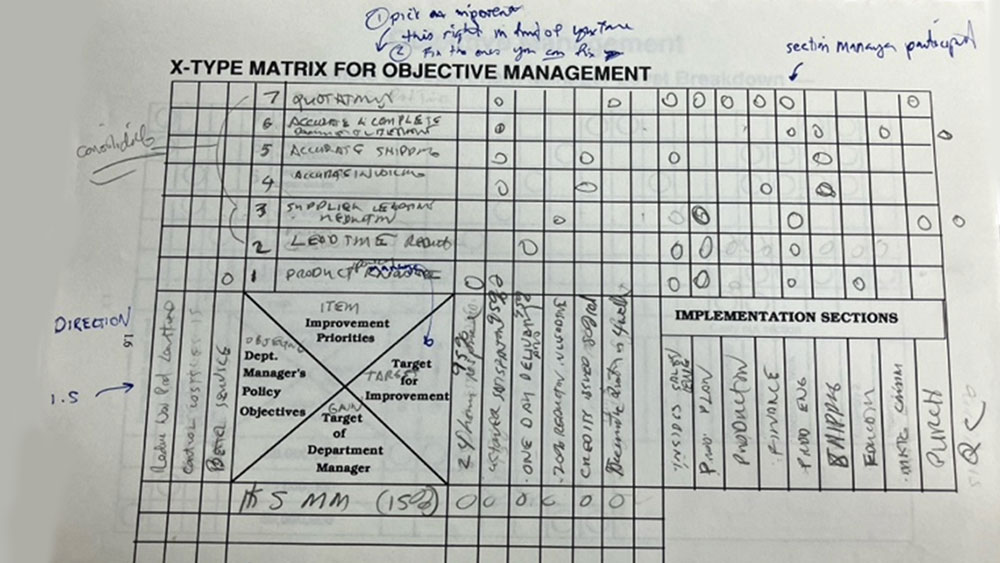Bruce Hamilton
A page from my workshop notes, October 1989
In October 1989, my company hosted Total Improvement Process Week, one of the most productive experiences of my career. Our consultant was Ryuji Fukuda, a Deming Prize winner and author of Managerial Engineering (Productivity Inc., 1983), a book I still value for its emphasis on management’s role in continuous improvement. When the chance came to bring Fukuda in for a workshop, we jumped on it.
|
ADVERTISEMENT |
Discovering the X-type matrix
Among the many topics on Day One of Fukuda’s workshop was a new concept: the X-type matrix for objective management, now simply called the X-matrix. It wasn’t in Fukuda’s book, and I’d never seen it elsewhere. Remember, in 1989, information on the Toyota Production System (TPS) was scarce: no A3s, no value stream maps, no TPS House, and not even a glimpse of Toyota’s own strategic planning process.
…

Add new comment